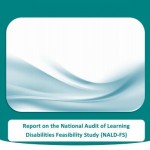
The results of the feasibility study into a national clinical audit of learning disabilities was published last month. Here we consider the findings and the response from NHS England
[read the full story...]
The results of the feasibility study into a national clinical audit of learning disabilities was published last month. Here we consider the findings and the response from NHS England
[read the full story...]
The Government progress report on the Confidential Inquiry into Premature Deaths of People with Learning Disabilities was published last week. In this blog, Pauline Heslop and colleagues who wrote the original Confidential Inquiry, reflect on the progress that has been made and what still needs to be done.
[read the full story...]
Today we have a debut blog from Nick Burton, Regional Operations Manager at Mencap. He reviews a new multi-agency report that provides guidance for services working to reduce the risk of choking in people with learning disabilities.
[read the full story...]
We have posted a number of times on this site about approaches to adapting cognitive behavioural therapy to work with people with learning disabilities. Most recently, a team from University College published a series of documents representing a ‘manualised’ cognitive behavioural therapy (CBT) treatment. The authors of this case study however set out to look [read the full story…]

People with learning disabilities have low take-up rates for health promotion or screening activities. Work in the south west of the country to look at reasonable adjustments a couple of years ago resulted in a number of recommendations for local action along with recommendations to the national cancer screening programmes regarding the identification of people [read the full story…]

Recent NICE guidance suggested that 30% of people over 65 and 50% of people over older than 80 fall at least once a year and there is evidence that in people with learning disabilities there is some increased risk and this impacts on people of younger age. Finlayson, in a prospective cohort study suggested that [read the full story…]

A recent report by the Royal College of Psychiatrists attempted to set out the range of in-patient service provision for adults with learning disabilities and set the role of assessment and treatment beds in the context of a broader range of services. They stated very clearly in that report that in-patient services should form part [read the full story…]

Living your own life in your own home is something most of take for granted. It’s just something you do. We don’t tend to think about community, or independent living, or planning, we get on with it. This is not always the case for people with learning disabilities. In this post, we wanted to link [read the full story…]

Following the uncovering of abuse at Winterbourne View by the BBC’s Panorama team, the Government committed to a programme of action to address what were recognised as system wide failures in the care and support of adults with learning disabilities described as having complex challenging behaviours. (Transforming Care) The Transforming Care document set out a [read the full story…]

Research by SeeAbility and the RNIB suggests that adults with learning disabilities are ten times more likely to be blind or partially sighted than the rest of the population. If they have severe or profound learning disabilities, then they are likely to have serious sight problems. There already exists some guidance for GPs on responding [read the full story…]